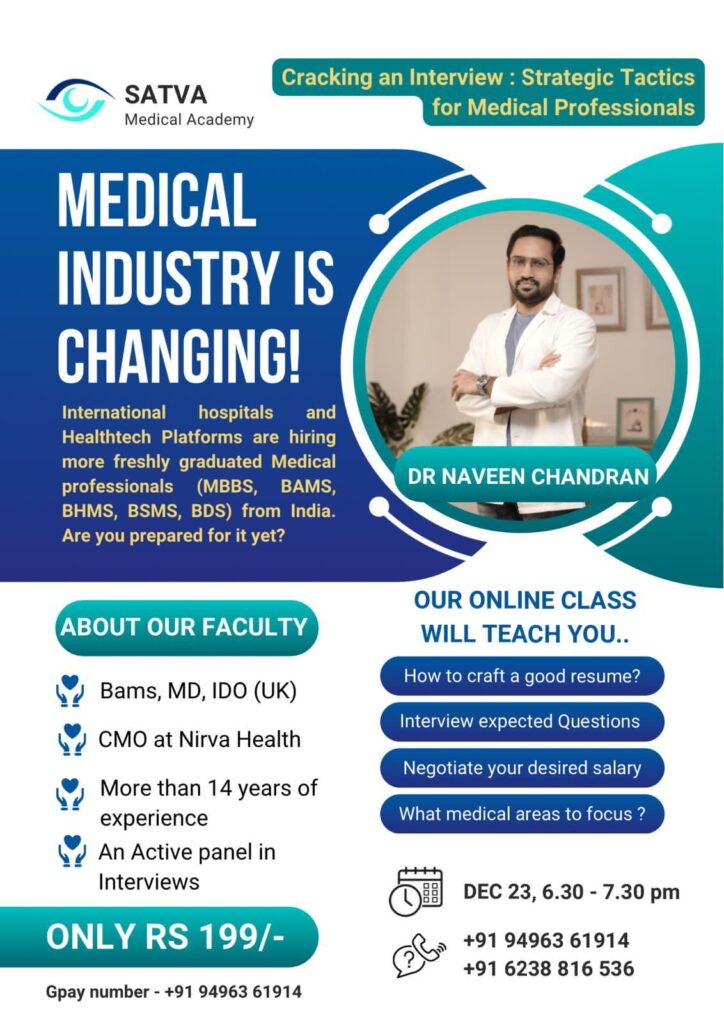
Medical interviews are a pivotal component of the admissions process for aspiring medical students and a crucial aspect of professional advancement for practicing doctors. These interviews not only assess a candidate’s academic qualifications but also their interpersonal skills, empathy, and suitability for a career in medicine. Given the competitive nature of medical school admissions and the high stakes involved in medical practice, thorough preparation for these interviews is essential.
Understanding the Role of Medical Interviews
Medical interviews serve multiple purposes:
- Assessment of Personal Qualities: Beyond academic achievements, interviews evaluate candidates’ non-cognitive attributes such as communication skills, emotional intelligence, and ethical reasoning. Interviewers seek to understand how candidates think, react under pressure, and relate to others.
- Verification of Application Details: Interviews provide an opportunity to discuss experiences highlighted in applications, allowing candidates to elaborate on their motivations and insights gained from their journeys.
- Insight into Candidate Fit: For medical schools and employers, interviews help determine whether a candidate aligns with the institution’s values and culture. This fit is crucial for fostering a supportive learning environment and effective healthcare teams.
The Impact of Preparation
- Boosting Confidence: Preparing for an interview helps candidates feel more confident. Familiarity with common questions and scenarios reduces anxiety, allowing individuals to present themselves authentically.
- Enhancing Communication Skills: Preparation encourages practice in articulating thoughts clearly and coherently. Candidates learn to express their ideas effectively, which is vital in both interviews and future patient interactions.
- Navigating Complex Scenarios: Medical interviews often include ethical dilemmas or situational questions that require critical thinking. By preparing for these types of questions, candidates can develop structured responses that demonstrate their problem-solving abilities.
- Understanding Interview Formats: Different medical schools employ various interview formats—panel interviews, multiple mini-interviews (MMIs), or one-on-one sessions. Familiarity with these formats allows candidates to tailor their preparation strategies accordingly.
- Reflecting on Experiences: Effective preparation involves reflecting on past experiences, including volunteer work or clinical exposure. This reflection helps candidates articulate their commitment to medicine and the lessons learned from their experiences.
Strategies for Effective Preparation
- Research Common Questions: Familiarize yourself with typical interview questions related to motivations for pursuing medicine, ethical scenarios, and personal experiences. Practice crafting thoughtful responses that highlight your strengths.
- Mock Interviews: Engage in mock interviews with peers or mentors to simulate the interview environment. This practice can help refine your responses and improve your comfort level during actual interviews.
- Stay Informed: Keep abreast of current issues in healthcare and medical ethics. Being knowledgeable about contemporary topics can enhance your discussions during the interview.
- Seek Feedback: Constructive feedback from experienced interviewers can provide valuable insights into areas for improvement. Use this feedback to refine your approach.
- Mind Your Presentation: First impressions matter; dress appropriately, maintain eye contact, and exhibit positive body language during the interview. These non-verbal cues can significantly impact how you are perceived.
In conclusion, preparation for medical interviews is not merely about rehearsing answers; it encompasses a comprehensive approach that enhances communication skills, builds confidence, and fosters self-reflection. For medical students and professionals alike, investing time in preparation can lead to successful admissions outcomes and improved patient interactions throughout their careers. By approaching the interview process with diligence and intention, candidates can effectively showcase their readiness for the challenges of a medical career.


